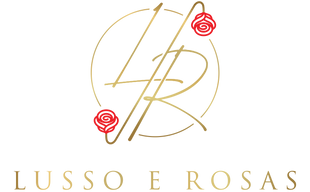Wealth Transfer for Fashionistas: Why Luxury Handbags and Timepieces are Must-Have Assets
The Increasing Value of Luxury Goods
As fashionistas know, luxury handbags and timepieces are not only exquisite fashion statements but also valuable investments. Over the years, the value of luxury goods has consistently risen, making them a wise financial decision. Brands like Rolex, Chanel, Celine, Panerai, Hermes, and Audemars Piguet have become highly sought-after, with their limited edition pieces becoming even more valuable over time. By investing in these luxury assets, fashion-forward individuals can enjoy the beauty and prestige of these items while also benefiting from their increasing value, making them an essential addition to any investment portfolio.
Legacy and Sentimental Value of Luxury Assets
Luxury handbags and timepieces hold not only monetary value but also sentimental and legacy value. These iconic brands like Rolex, Chanel, Celine, Panerai, Hermes, and Audemars Piguet have a rich history and craftsmanship that is passed down through generations. Owning these luxury assets allows individuals to create a lasting legacy, a piece of their personal style that can be cherished by their loved ones. These items hold memories, emotions, and a sense of connection that cannot be replicated by any other investment. Investing in luxury assets is not just about financial gain, but also about preserving a piece of one's personal history.
The Tangibility of Luxury Assets
One of the unique aspects of luxury assets like handbags and timepieces is their tangible nature. Unlike stocks or bonds, which are intangible and exist only in digital form, luxury assets can be physically held and admired. The weight, craftsmanship, and attention to detail that goes into creating these items is something that can be appreciated and cherished. Owning a luxury handbag or timepiece is a sensory experience, from the feel of the leather to the ticking of the watch. This tangibility adds to their allure and makes them even more desirable for those looking to invest in assets that can be enjoyed in a hands-on way.
Flexibility in Transfer and Sale
Luxury handbags and timepieces offer incredible flexibility when it comes to transferring and selling them. These assets can be easily passed down to future generations as heirlooms, ensuring that their value and sentimental significance are preserved. Additionally, if the need arises, these luxury items can be sold to generate cash quickly. The demand for iconic luxury brands remains high, making it relatively easy to find buyers for these assets. This flexibility allows fashion-forward individuals to enjoy their luxury investments while also having the option to transfer or sell them when necessary.
Luxury Goods as a Safe Haven
When it comes to investing, the stock market can be unpredictable. However, luxury handbags and timepieces have proven to be a safe haven for investors. During times of economic uncertainty, these assets tend to hold their value or even increase in worth. Fashion-forward individuals can take comfort in knowing that their investment is not tied to the fluctuations of the market. Instead, they can rely on the timeless appeal and enduring popularity of luxury brands like Rolex, Chanel, and Hermes. Investing in luxury goods is a way to secure your wealth in a tangible and reliable asset that transcends market volatility.
Luxury Assets and Tax Considerations
When it comes to investing in luxury handbags and timepieces, it's important to consider the tax implications. While these assets can provide significant returns, it's essential to understand how they may be taxed. Depending on your location and the specific circumstances, luxury assets may be subject to capital gains tax, gift tax, or inheritance tax. It's advisable to consult with a financial advisor or tax professional to navigate the complexities of tax laws and ensure that your wealth transfer strategy aligns with your goals. By considering the tax considerations, fashion-forward individuals can make informed decisions about their luxury investments.





Leave a comment